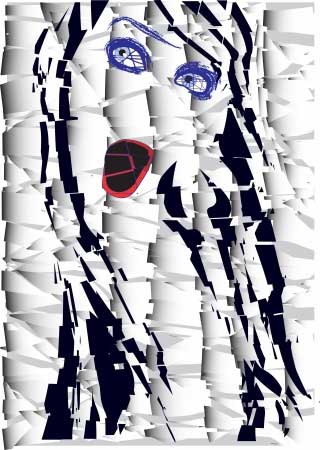Lovelace, Mind Rape, and Positivity
 Recently my husband and I watched Lovelace. It was interesting, sad and tragic. In her version of the story, Linda Lovelace endured abuse by her husband Chuck Traynor. What really struck a chord, and what I want to call attention to, happened in the first segment when Linda, a young impressionable eager-to-be-loved woman, sees herself through a photographers lens, and exclaims, “You made me beautiful.”
Recently my husband and I watched Lovelace. It was interesting, sad and tragic. In her version of the story, Linda Lovelace endured abuse by her husband Chuck Traynor. What really struck a chord, and what I want to call attention to, happened in the first segment when Linda, a young impressionable eager-to-be-loved woman, sees herself through a photographers lens, and exclaims, “You made me beautiful.”
He hadn’t.
She’d been beautiful all along—she just didn’t see it.
Usually, we see ourselves only through the filter of our mind which also contains our insecurities, condemnations, fears and self-doubt. We don’t see what others see. Because our mind usually interprets what we look like negatively, we’re not aware of how beautiful we really are.
With the trend to post “selfies,” on social media it may seem that more of us think we’re beautiful, but posting pictures of ourselves excessively is detrimental to our self-image. Looking for someone else to validate our image is fleeting affirmation, although if we allow the occasional posting and resultant favorable comments from our friends to really be heard within, this could be the first step towards a deeper love affair with ourselves.
- When your friends say you have an awesome cover photo, sit with the compliment and don’t rush off to “like” or comment on someone else’s post
- Look at your image objectively—as if you were one of the those friends and really see your energetic eyes, sunny smile, the positive vibrations your photo emits
- Emblazon your beautiful image into your mind
- The next time you’re insecure about how you look or catch yourself comparing yourself to someone else, close your eyes and see your beautiful image again, feel the positive feelings you’ve already gotten in touch with that are associated with that image
- Increase your positive love-based responses and actions toward yourself and others so that you feel good about who you are and what you do
By developing your internal relationship with yourself to be one that authentically acknowledges both your external beauty and your internal positivity, you won’t have to have others tell you you’re beautiful. You’ll know they think you are through the way they treat and respond to you. More importantly, when no one is telling you you’re beautiful, you’ll still feel it from the inside.
I know this first hand. My experiences are similar to Linda’s exclamation in that I first saw my beauty through a picture. In Chapter 3 of my memoir, From Sex Appeal to Self Appeal, I write about seeing my beauty in a one-dimensional glossy photograph. When I saw those pictures for the first time, I had a hard time saying “I’m beautiful,” and more easily gave the credit to the photographer. Fortunately, no one manipulated or coerced me into doing something I didn't want to do, although I continued to search for external validation of my beauty.
I thought I new Linda’s real story after watching this film, and maybe I do, or maybe this is just Hollywood’s version, I cannot say for sure, but what I can say for sure is that if more of us women really see our beauty and internalize it, we can role model and impart that positivity and beauty to all females in our lives, young and old alike. There will be less opportunity for the Chuck Traynors of the world as well as all the pedophiles and sex traffickers to exploit, coerce, and manipulate young impressionable women into falling into traps that cause them harm. If more of us older women reach out and share our experiences with our daughters, our friends, our students, mirror their real beauty back to them and help them not only see it but feel it, then we could stop this rape of the mind that allows others to feed on our insecurities and fears, this rape of the mind that tells us we’re not enough the way we are.
